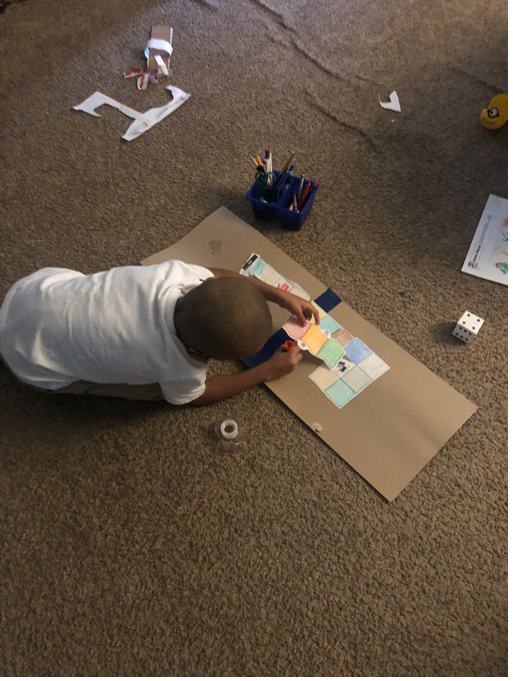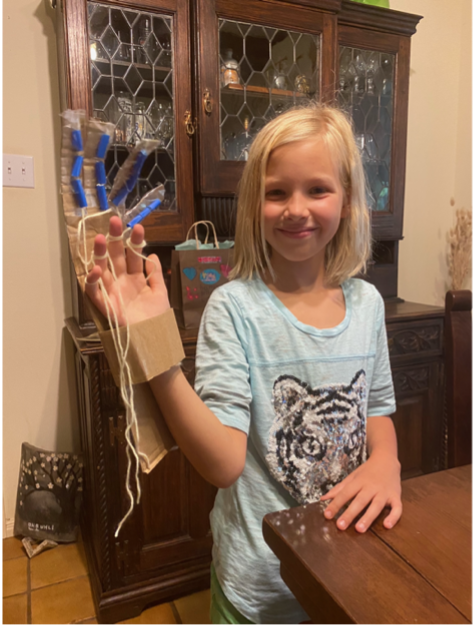
Section Branding
Header Content
PBS STEAM Kits Build Family Relationships
Primary Content
Many families long for activities that they can do together at home to keep their children excited for creative and exploratory activities away from the four walls of the classroom. Family fun is an important part of building a strong family relationship. When families have fun together, they build bonds that can last a lifetime. Spending time partaking in everyday family leisure activities has been associated with greater emotional bonding within families. Building stronger family relationships makes it easier to form habits to display interest in the well-being of your family members, which can lead to a willingness to share problems and build mutual respect between family members.

STEAM is an educational approach to learning that uses Science, Technology, Engineering, the Arts and Mathematics (STEAM) as access points for guiding student inquiry, dialogue, and critical thinking. STEAM is an approach to education that motivates students to be curious learners who seek creative solutions to real-world problems; this helps them develop the soft and hard skills necessary to succeed at life’s challenges and builds confidence. The end results are students who take thoughtful risks, engage in experiential learning, and persist in problem-solving.
Georgia Public Broadcasting and PBS KIDS have joined forces to launch the free PBS KIDS STEAM Kits at home to encourage playful learning amongst families. Just like you, we know the best way to help young children learn is to give them a chance to learn and discover in different ways. PBS KIDS is no stranger to households, as they continuously provide educational videos, games, and apps, and hands-on activities to introduce kids to new skills and give them a chance to explore those skills in different ways.
The PBS KIDS STEAM Kit uses this approach to help families learn while having fun together for four consecutive weeks. This initiative kicked off with GPB and other selected public broadcasting stations in September 2021 with families participating each week in STEAM activities provided by PBS KIDS. The STEAM Kit has been created for grownups and kids to explore Science, Technology, Engineering, Art, Math skills together. Each week, registered families opened a new STEAM packet found in their kit, provided through the initiative, and they work on an activity together. The families have discovered nature with PBS KIDS Nature Cat, created their very own robotic arm with Ready Jet Go!, and have had the opportunity to boast their craft skills with Scribbles and Art. The final activity will include families creating their very own math board game with PBS KIDS characters Dee, Dot, and Del. In the hands-on activity found in this packet, there’s fun for everyone with math questions to build math and problem-solving skills.
GPB has launched this fun activity with over 40 families across Georgia. Families have reported the impact these activities have had on their relationship building and the importance of family engagement. "We have enjoyed being part of the PBS STEAM group," said Jana Mantovani. "The girls were excited to get their supplies in the mail and have fun each week focusing on a different STEAM activity. It’s a great family activity that mom and daughter can work on together after school during the free time before dinner. Thanks for offering this great event!"

If you have ever been asked why family time is important, here are three strong reasons why spending time with family is important!
1. Stronger Family Relationships
It is beneficial to designate time to spend with family and partake in fun activities together to strengthen family relationships and perhaps even family trust. This holds true for all types of family activities. Family activities are not required to be big, expensive, or even fancy activities to build strong family relationships. Activities that families can do right at home can be just as impactful as any activity. Consider low-cost activities such as game night, movie night, gardening, or playing outdoors to be just as essential to family relationships. These consistent positive behaviors make everybody in the family feel closer emotionally and can be long-lasting to the family bond.
2. Improved Academic Success
You may have heard again and again that successful student academic performance is based on parent and teacher expectations. The academic success of a child is associated with having family support and guidance when needed. Students that know their family will cheer them on and hold high expectations will work harder to decrease disappointment in academic performance. This holds true especially in terms of studying. The authentic conversations that occur during family fun can be essential in a child’s understanding of the support of the family. If you help your kid with school matters, it is more likely for him/her to receive a better education.
3. More Family Time Can Lead to Greater Self-efficacy
Lastly, another benefit of family time can be building self-confidence. Self-efficacy reflects confidence in the ability to exert control over one's own motivation, behavior, and social environment. When families display self-confidence in a way that shows they have a positive value without putting others down, kids can learn to value themselves. Children can also learn to motivate themselves in challenging situations at school and home through family engagement activities. Family can foster healthy self-esteem and a positive self-concept. This occurs not only through modeling behavior but also through helping the child develop important skills. Social competence and problem-solving skills naturally improve the child’s self-confidence. Family members can make a real difference in how members view themselves and their ability to succeed in life.
Find a family activity and create a regular schedule to engage and have fun building your family bond. New fun and free activities can be found by visiting pbskids.org and signing up for the daily newsletter or visit gpb.org/events/education.





